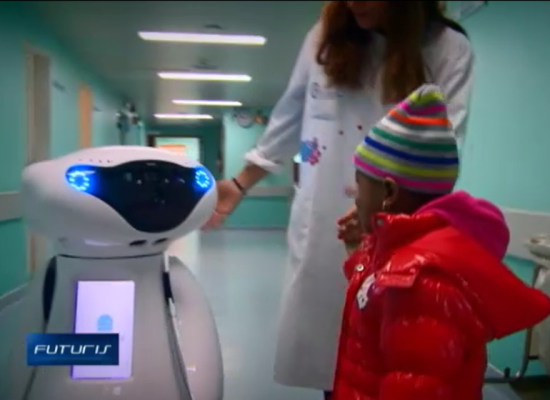|
The MOnarCH project focus is on social robotics using networked heterogeneous robots and sensors to interact with children, staff, and visitors, engaging in edutainment activities in the pediatric infirmary at the Portuguese Oncology Institute at Lisbon (IPOL), Portugal. Besides being a realistic scenario, the ethical regulations enforced by IPOL for the pediatric ward introduce important constraints on the use of some technologies, representing a challenging research opportunity. Moreover, it is an environment where socially admissible interactions can be well framed and implemented within current state of the art technologies. |
Similarly to what happens in human-human interactions, the interfacing between robots and humans is not required to be of premium quality and interactions are full of uncertainties introduced by both people and robot. Often interactions among humans are established using low quality interfacing, e.g., with vision or hearing problems. Instead, the focus is the quality of the decisions even under low quality interfacing. In a sense, social robots may compensate the lack/malfunction of some skills by their ability to interact socially. This is often observed in human interaction dynamics, e.g., as when an individual establishes a social connection with another individual or a group of individuals just to ask for the current time or indications on the way to reach some location.
State of the art imaging, RFID, bar code, and voice sensing, provide a fair amount of data to perception components, whereas robot navigation is nowadays a sound area. The project builds upon these technologies and state of the art techniques, and on concepts and models from social sciences to develop a framework to model mixed human-robot societies. The research includes (i) human-robot interfacing techniques that augment the normal human-like capabilities installed on board the robots, (ii) the planning and decision making in socially aware contexts under a cooperative perception infrastructure, and (iii) planning both single and group behaviors for human-robot interaction.
Keywords: Social Robotics, Cognitive Robotics, Mixed Human-Robot Societies, Human-Robot Interaction, Networked Robot Systems, Decision Making Under Uncertainty, Cooperative Perception

